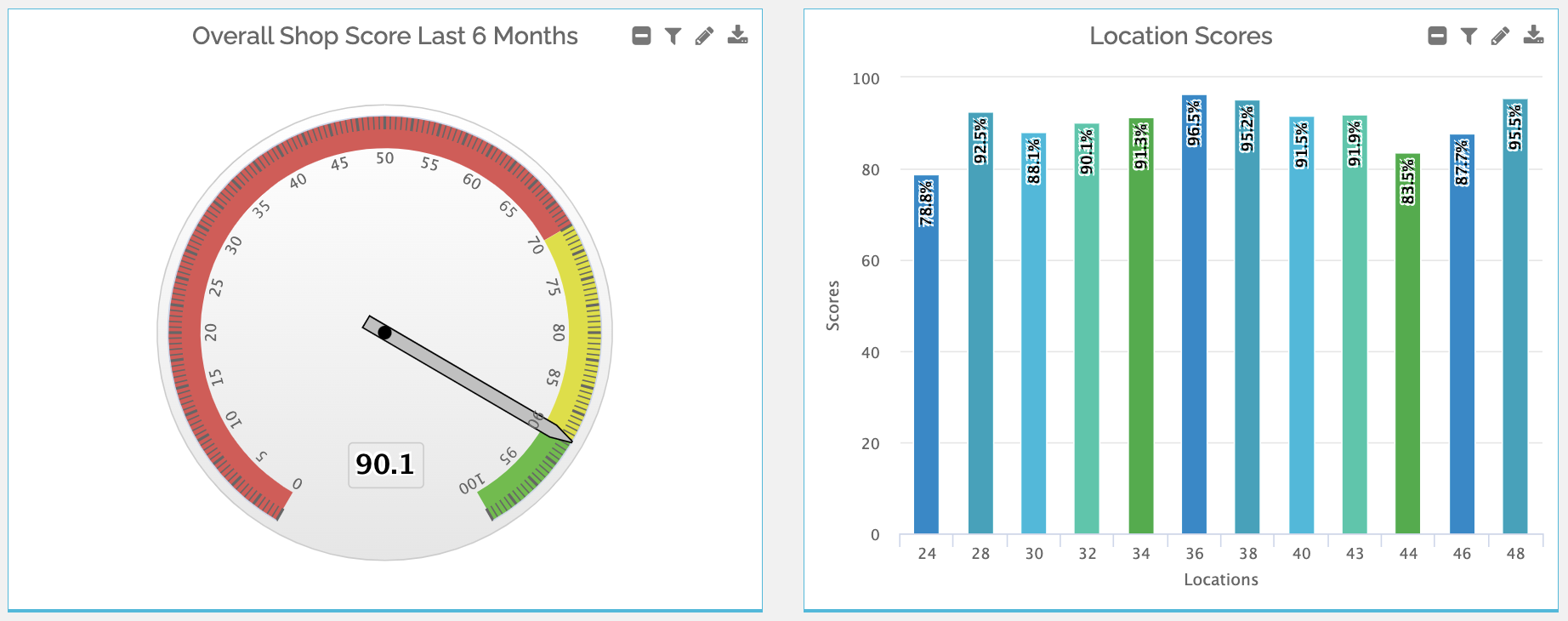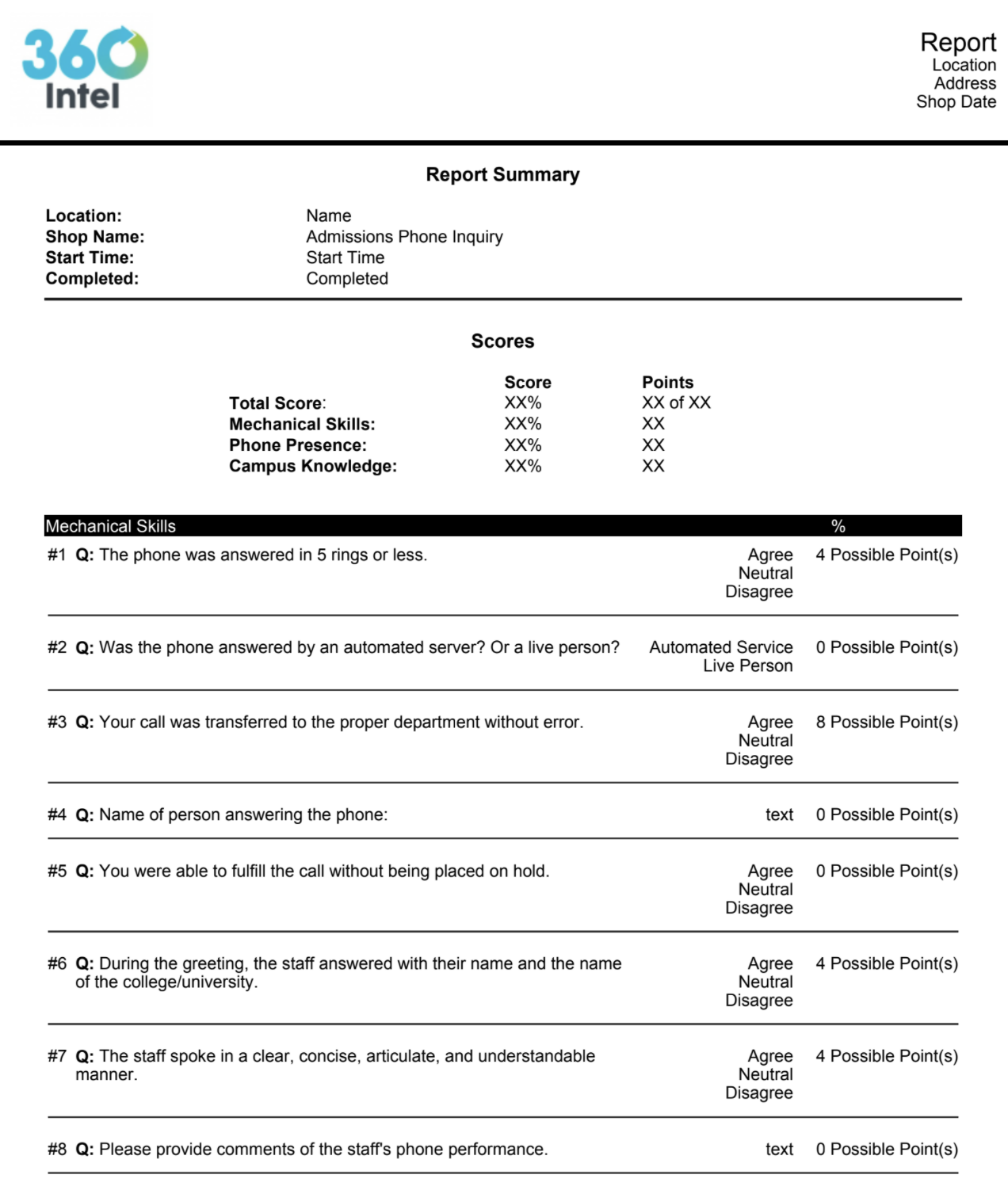“When’s the last time you enrolled in your own institution?
When is the last time you walked through those painful steps?”
In a recent webinar about achieving ambitious enrollment goals, one of our panelists posed these questions. He was referring to secret shopping, often called “mystery shopping.”
Another panelist advised:
“Continue to secret shop your own process and apply for your own programs. Find little areas that might be a sticking point or a point of frustration in the consumer journey. Work to smooth those things out and make it a better customer experience.”
I liked what I heard. And I wanted to learn more about mystery shopping and share it with you. So, I connected with Kurt Eddins, the owner, and president of 360Intel, a specialist in the field with immense experience applying the research process to colleges.
Here are highlights from our discussion…
First, I asked the obvious: what is mystery shopping?
Kurt: How I describe it, in the shortest way possible, is sending people into any sort of customer situation, whether it’s restaurants or stores—or in this case, colleges—and having them evaluate their experience anonymously or undercover. They fill out a report with a very specific checklist of items, and then we take the report and give it to the business owner or manager, so they can try to improve their operation and coach their teams.
People hire us to do this so they can get objective, third-party information about what is happening at their college. How are they being presented? How is their brand being represented at the customer interaction level?
There are many ways to get feedback these days, but mystery shopping is a way to ask the questions you want to ask and get a very detailed report on what happened.
At higher ed institutes, a lot of directors and such have some basic assumptions about what’s happening, how their counselors are performing, but don’t take the extra step to check these things with a mystery shopping program.
Some of the information we gather is shocking. It might be something as basic as filling out a web form and the person not being contacted at all either because the lead wasn’t created in the CRM, or because it’s going to an old email address or whatever. And then you can also get more detailed information about customer service and sales skills and things along those lines.
Tell me about the benefits. You told me the process puts the employees in the admissions office on their toes.
Kurt: We advise our clients to let their teams know up front they’re hiring a company like us because you don’t want it to be found out later that you’re spying on your team. Something like, “Hey, we’re doing this new service, we want to get better feedback so we can improve as a team.”
By getting that team buy-in, everyone knows any student could be a shopper and could be evaluating them. The analogy I like is it’s like a scout in the stands for an athlete.
We moved on to the second benefit: better decision-making.
Kurt: We send the reports to the client within 24 hours. So, the individual reports themselves are extremely useful. But the biggest benefit is the aggregate of all the information, so if you’re doing multiple shops each month, over time, you’re collecting a lot of data about your customer experience, and then you can see the trends and patterns that emerge with where you’re struggling or performing well.
You can use that information to make better decisions as an organization about how you deploy your resources, how you set up training programs for new hires, or that sort of thing.
I asked Kurt to go a level deeper regarding the reports colleges are provided.
The typical shop report will have anywhere from 20 to 50 questions on it, depending on what level of detail they want us to go into, so it’s emailed to them.
We also have an online dashboard where that data is uploaded. You can access the individual reports and also see those trends and summary reports and the most commonly missed questions, your lowest scoring, and highest scoring questions.

If you operate multiple campuses, you can look at the performance across them and see who’s performing well and who’s not. So the dashboard is a nice way to kind of zoom out and see what’s going on as a whole.

Kurt shared a template for an admissions questionnaire with me which broke down the “shopping” into (1) mechanical skills (2) phone presence, and (3) campus knowledge. I asked if it’s a typical questionnaire.
Kurt: It is. I think those are the most common categories our clients are after. Are we getting people to the right place? Are people friendly and helpful? And then, are we presenting the campus in the right way and selling ourselves?
Every client has a different approach to the “sales component,” so the way those questions are structured varies from school to school.
Is part of the conversation about creating a persona for a secret shopper so you’re really honing in on specific potential “buyers?”
Kurt: 100%. We ask all of our higher ed clients to provide us with personas. We want to make sure their shoppers are set up for success with the right background and knowledge so they can speak the part.
We have clients that are third-party admissions companies that schools hire to run their admissions departments for them. So we do a lot of shops for their targeted programs, and they have to provide us with these personas, so folks know exactly what they’ve signed up for and how they need to present themselves.









![21 Persuasive Sales Email Templates [With Examples and Best Practices] 4 Sales email template to write effective emails](https://www.leadsquared.com/wp-content/uploads/2022/04/Sales-email-template-to-write-effective-emails-80x80.png)